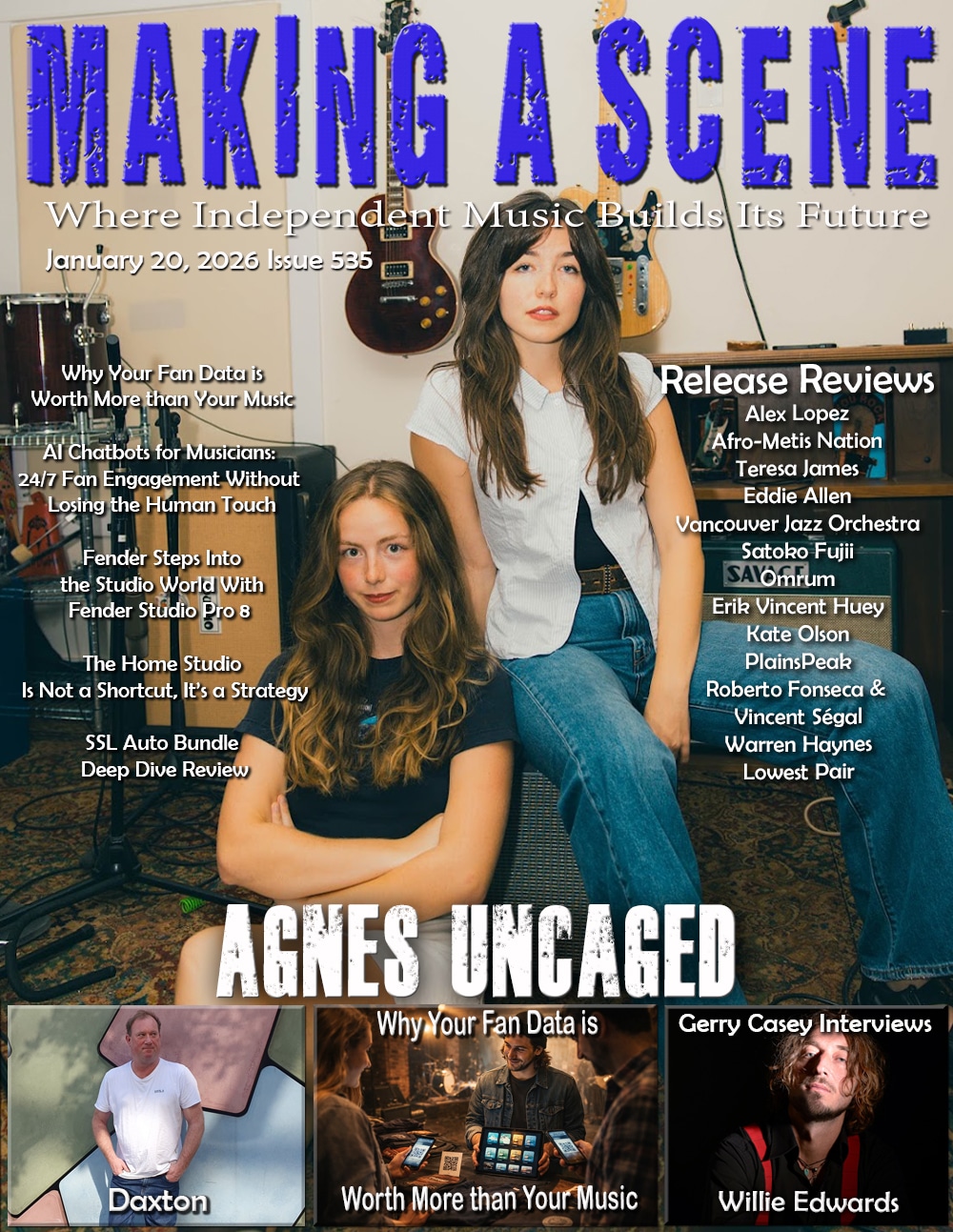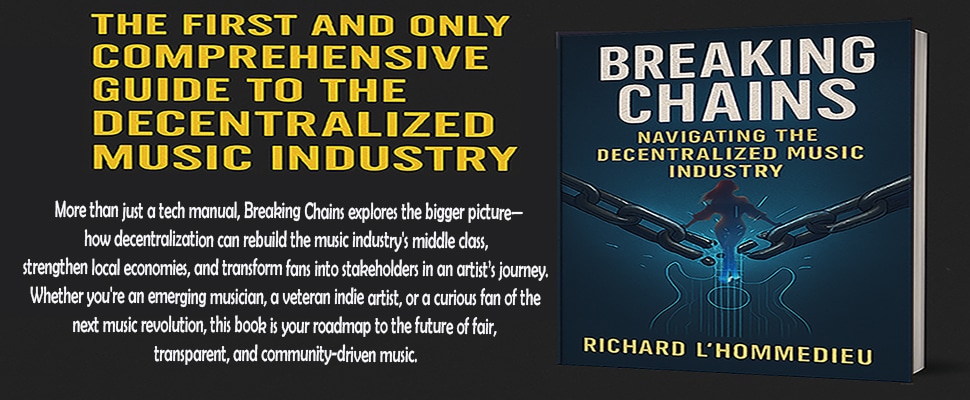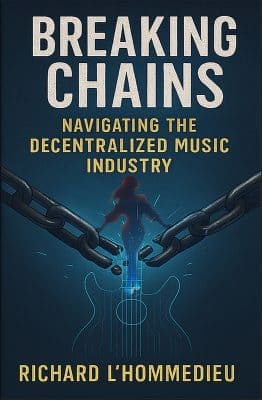10 Ways the Music Industry Is Rigged Against Independent Artists (And How to Fight Back)
Making a Scene – 10 Ways the Music Industry Is Rigged Against Independent Artists (And How to Fight Back)
If you’re an independent artist trying to carve your path in the music industry, you’ve probably felt it—something’s off. You pour your heart into a record, hustle on social media, release your music everywhere, and then… crickets. Maybe a few streams. A trickle of royalties. A vague Spotify algorithm that never seems to favor your work. You’re not imagining it—the music industry is, in many ways, rigged against indie musicians.
But the good news? You’re not powerless. New tools, platforms, and communities—especially those born from Web3 and decentralized tech—are flipping the script. Here’s a deep dive into the top 10 ways the system stacks the deck against indie artists—and what you can do to reclaim your power.
1. Streaming Royalties Are a Joke (Unless You’re a Superstar)
The Problem: Spotify, Apple Music, and other DSPs (Digital Service Providers) pay fractions of a penny per stream. In Spotify’s case, it’s around $0.003–$0.005 per play. And thanks to the “pro-rata” payout model, your money often gets funneled to the most streamed artists—usually major label acts.
The Fix:
-
Bandcamp pays artists directly and allows fans to pay more if they want. They even have “Bandcamp Fridays” where the platform waives its fees.
-
Audius is a decentralized streaming platform that runs on blockchain tech. It gives artists a bigger slice of the pie and enables fan-token tipping.
-
Consider releasing exclusive content on platforms like Ampled (artist-owned, similar to Patreon) or Resonate, a co-op streaming service designed for fair artist payouts.
2. Major Labels Still Dominate the Charts and Playlists
The Problem: Roughly 70% of all Spotify streams go to just three labels: Universal, Sony, and Warner. These majors have sweetheart deals with streaming platforms and essentially buy priority placement on big playlists.
The Fix:
-
SubmitHub and Groover let you pitch your tracks to curators and indie influencers for a small fee—cutting through the gatekeepers.
-
Build your own audience via email lists using platforms like ConvertKit or Mailchimp. Playlists can boost you temporarily—but fan relationships last forever.
-
Use Playlister Club or Daily Playlists to get your music into algorithmic rotation outside the major label pipeline.
3. The Algorithm Isn’t “Neutral”—It’s Biased Toward Profit
The Problem: Spotify claims its algorithm promotes music people “want to hear,” but in reality, opting into services like Discovery Mode means giving up royalty percentages in exchange for more algorithmic exposure. This creates a “pay-to-play” environment, favoring labels with deep pockets.
The Fix:
-
Focus on platforms that don’t algorithmically suppress indie content. SoundCloud, Audius, and Bandcamp provide better organic exposure.
-
Direct fans to your own platform using tools like Linktree or Koji, where you control the user experience.
-
Set up gated experiences using Bonfire or Unlock Protocol, where superfans access exclusive content based on NFT ownership or token access—completely outside of the algorithm.
4. You Don’t Own Your Audience
The Problem: Social media gives you reach—but no ownership. If TikTok bans your account or Instagram changes its algorithm, your entire fanbase could vanish overnight. And email marketing? Often overlooked, but still king when it comes to control.
The Fix:
-
Build a fan database using Bandzoogle or Squarespace with integrated mailing list signups.
-
Offer NFTs or tokens through MintSongs, Zora, or Catalog that grant holders access to private Discord channels, merch discounts, or concert tickets.
-
Use Gumroad or Luma to sell directly to your audience and retain control over your data.
5. Live Gig Economics Are Broken
The Problem: Touring is expensive, especially post-pandemic. Small venues often operate on a “pay-to-play” model or take significant cuts of ticket and merch sales. Meanwhile, bigger tours are dominated by Live Nation/Ticketmaster monopolies.
The Fix:
-
Host your own virtual shows on Twitch, Bandcamp Live, or Veeps where you control the revenue stream and can set ticket prices or donation options.
-
Use Eventbrite or Brown Paper Tickets to manage indie shows on your own terms.
-
For token-gated live experiences, use tools like Tokenproof or Medallion to let NFT holders into exclusive streams, green rooms, or even in-person meetups.
6. You’re Competing Against AI-Generated Music
The Problem: DSPs are now quietly flooding passive playlists (e.g., “Focus,” “Sleep,” “Chill Vibes”) with royalty-free or AI-generated music they own—cutting human artists out of even background playlists. These tracks cost almost nothing and help platforms avoid paying you.
The Fix:
-
Embrace AI on your own terms. Use tools like Suno, AIVA, or Soundraw to enhance your creative process, not replace it.
-
Educate your fans—tell your story. Authenticity is your greatest weapon in the age of soulless, generated soundscapes.
-
Tag your music properly on DSPs and metadata services like Cyanite.ai to ensure your content is found and categorized correctly.
7. Traditional Press and PR Still Costs a Fortune
The Problem: Getting press coverage in top music blogs or magazines often requires a publicist, which can cost anywhere from $1,000–$10,000+ per campaign. That’s a huge barrier for most indie artists.
The Fix:
-
Pitch your own story using platforms like Indie Music Bus, Hype Machine, or Musosoup, which cater to indie artists.
-
Use Canva or Adobe Express to create professional EPKs and promo materials.
-
Learn the PR game with educational platforms like Making a Scene, Ari’s Take, or DIY Musician Podcast to craft better pitches.
8. Copyright and Royalties Are a Legal Maze
The Problem: Many artists don’t understand how publishing, performance rights, and royalties work—leading to lost income. You might be leaving money on the table simply because you’re not registered with the right entities.
The Fix:
-
Register with BMI or ASCAP (US) for performance rights. If you’re outside the US, find your country’s PRO (Performance Rights Organization).
-
Use Songtrust or Sentric Music to collect publishing royalties globally.
-
Track your streams and earnings with platforms like DistroKid, TuneCore, or Stem, which offer detailed analytics and split payments.
9. Scams and Exploitation Are Everywhere
The Problem: Fake playlisting services, shady promoters, “managers” who promise deals for cash—indie musicians are frequently targeted because of their vulnerability and hunger for success.
The Fix:
-
Vet every opportunity. If someone asks for upfront money in exchange for “exposure,” run.
-
Check platforms like IsMyTrackSafe, Slaps.com, or artist forums on Reddit and Discord to see if others have been burned by a particular service.
-
Create and manage smart contracts for collaborations using Arpeggi Labs, Paper.xyz, or Manifold to ensure you get paid transparently.
10. There’s No Standard Path—And That’s Frightening
The Problem: The industry is fragmented. One artist blows up on TikTok, another through sync licensing, another on Bandcamp. There’s no single “right way,” which leaves many musicians overwhelmed and directionless.
The Fix:
-
Design your own career strategy. Focus on what aligns with your values—whether that’s fan-first experiences, fair pay, or creative freedom.
-
Join communities like Water & Music, Making a Scene, or Discord DAOs such as MODA DAO or SongADAO that support indie musicians navigating decentralized tools.
-
Experiment and iterate. You’re a startup, not a factory. Use Notion or Airtable to track progress, campaigns, and strategies that work.
Final Thoughts: Flip the Script
Yes, the music industry is still rigged in many ways. But the tides are shifting. Web3 tools, decentralized platforms, and artist-owned ecosystems are giving musicians more control than ever before.
You no longer have to beg a label, fight for playlist space, or pray that an algorithm shows mercy. You can build a direct relationship with your fans, own your rights, and distribute your work on your terms.
It won’t be easy. But it will be worth it. Because the moment you stop playing by their rules… is the moment you start building your own.
Want More?
If you’re serious about escaping the trap of the traditional music industry, dive deeper into these resources:
-
Making a Scene – News, reviews, and tools for indie artists.
-
Water & Music – In-depth research and education on music and Web3.
-
Mirror.xyz – A Web3 publishing platform where you can monetize your music stories, drops, and updates directly.
-
Zora.co – A marketplace for music NFTs, digital art, and token drops.
-
Sound.xyz – Mint tracks as NFTs and connect directly with fans and collectors.
Let the majors keep their gated towers. Indie artists are building a new city—one block, one token, one song at a time.
Buy Us a Cup of Coffee!
Join the movement in supporting Making a Scene, the premier independent resource for both emerging musicians and the dedicated fans who champion them.
We showcase this vibrant community that celebrates the raw talent and creative spirit driving the music industry forward. From insightful articles and in-depth interviews to exclusive content and insider tips, Making a Scene empowers artists to thrive and fans to discover their next favorite sound.
Together, let’s amplify the voices of independent musicians and forge unforgettable connections through the power of music
Make a one-time donation
Make a monthly donation
Make a yearly donation
Buy us a cup of Coffee!
Or enter a custom amount
Your contribution is appreciated.
Your contribution is appreciated.
Your contribution is appreciated.
DonateDonate monthlyDonate yearlyYou can donate directly through Paypal!
Subscribe to Our Newsletter
Order the New Book From Making a Scene
Breaking Chains – Navigating the Decentralized Music Industry
Breaking Chains is a groundbreaking guide for independent musicians ready to take control of their careers in the rapidly evolving world of decentralized music. From blockchain-powered royalties to NFTs, DAOs, and smart contracts, this book breaks down complex Web3 concepts into practical strategies that help artists earn more, connect directly with fans, and retain creative freedom. With real-world examples, platform recommendations, and step-by-step guidance, it empowers musicians to bypass traditional gatekeepers and build sustainable careers on their own terms.
More than just a tech manual, Breaking Chains explores the bigger picture—how decentralization can rebuild the music industry’s middle class, strengthen local economies, and transform fans into stakeholders in an artist’s journey. Whether you’re an emerging musician, a veteran indie artist, or a curious fan of the next music revolution, this book is your roadmap to the future of fair, transparent, and community-driven music.
Get your Limited Edition Signed and Numbered (Only 50 copies Available) Free Shipping Included
Discover more from Making A Scene!
Subscribe to get the latest posts sent to your email.










